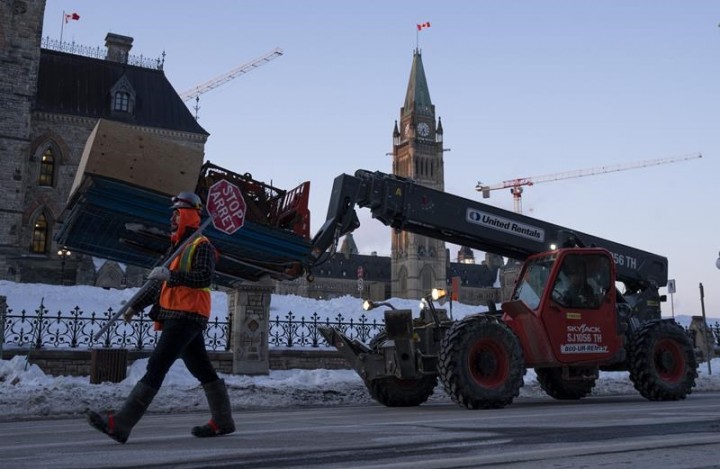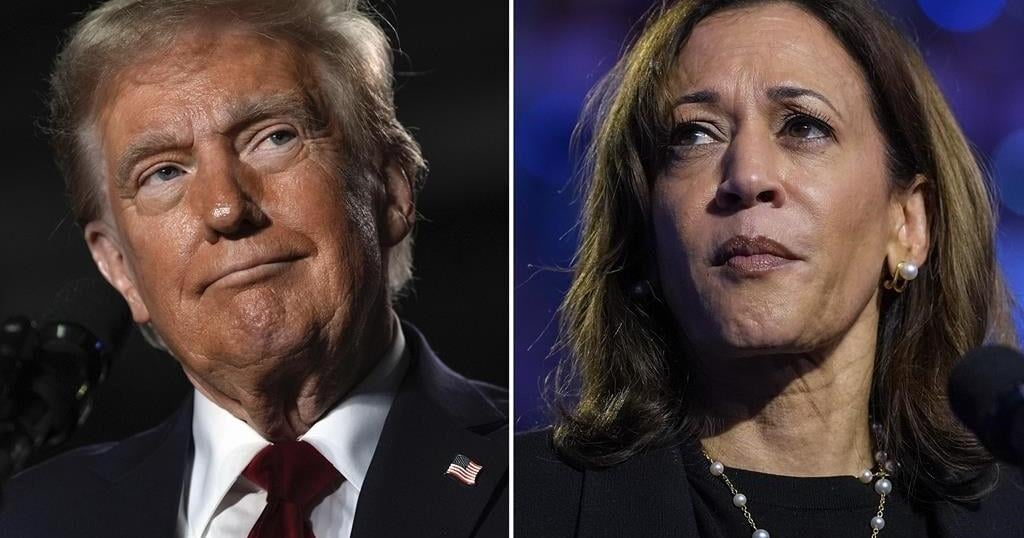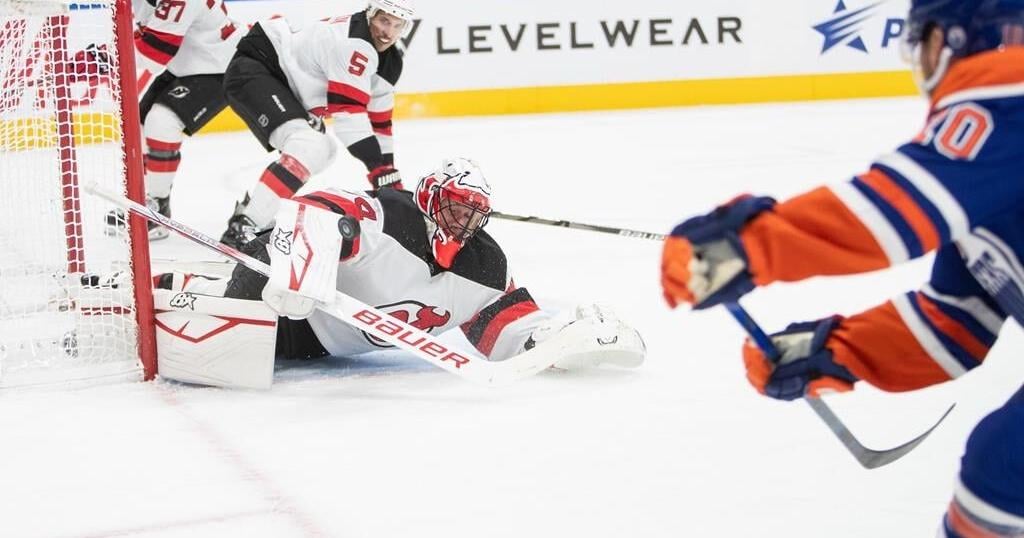WASHINGTON – Millions of Americans are heading to the polls Tuesday as a chaotic presidential campaign reaches its peak in a deeply divided United States, where voters in only a handful of battleground states will choose the country’s path forward.
Vice-President Kamala Harris and former president Donald Trump have presented starkly different visions for America’s future, but polling shows the two remain in a dead heat.
“Any election in the U.S. is important and impactful for us,” said Kirsten Hillman, Canada’s ambassador to the United States. “They are central to our economic prosperity. They are a vital security partner.”
Hillman has been travelling across America meeting with key members of the Republican and Democrat teams to prepare for any outcome. On election night, after her embassy duties are finished, she’ll be watching the results with her husband and friends — and said she’s leaning toward ordering pizza.
While the gathering with loved ones may bring solace amid the anxious anticipation, Hillman knows more than anyone the immense stakes at play for Canada.
“Whoever is sitting in the Oval Office and populating Congress is making decisions that may affect Canada, either decisions that provide us with opportunities or decisions that pose challenges for us,” Hillman said. “The job is to be ready for both.”
A shared history and 8,891-kilometre border will not shield Canada from the election’s outcome. Both candidates have proposed protectionist policies, but experts warn if the Republican leader prevails the relationship between the neighbours could be much more difficult.
“Trump and some of the key people around him, including (former trade representative) Robert Lighthizer, really want to stick it to Canada,” said Fen Hampson, a professor of international affairs at Carleton University in Ottawa.
Trump’s first administration demonstrated how vulnerable Canada is to America’s whims when the former president scrapped the North American Free Trade Agreement.
Negotiating its successor, the Canada-U.S.-Mexico Agreement, was a key test for Ottawa after Trump’s victory. Whoever takes over the White House this time will be in charge during the agreement’s review in 2026.
A cause for concern in Canada and around the world is Trump’s proposed 10 per cent across-the-board tariff. A Canadian Chamber of Commerce report suggests those tariffs would shrink the Canadian economy, resulting in around $30 billion per year in economic costs.
American economists warned Trump’s plan could cause inflation, and possibly a recession, which would almost certainly have ripple effects in Canada. More than 77 per cent of Canadian exports go to the U.S and trade comprises 60 per cent of Canada’s gross domestic product.
“When the American economy is growing, it’s generally good for us,” Hampson said. “If they take a deep dive under Trump … that will have a knock-on effect on us, on top of tariffs.”
The election outcome could also redefine America’s role in the world. Trump is critical of giving aid to Ukraine in its war against Russia, has attacked the United Nations and repeatedly claimed he would not defend NATO members that don’t meet defence spending targets — something Canada is not doing, and won’t for years.
Prime Minister Justin Trudeau promised to meet the target of spending the equivalent of two per cent of GDP on defence by 2032.
Trump’s first tenure also saw the Republican leader withdraw from the Paris Agreement, an international treaty to cut greenhouse gases.
Hampson said the Republicans’ push against international institutions and treaties will have “a profound impact” on Canada, but also key allies and the world order itself.
If Harris wins, it’s widely expected that there will be more normal relations based on established patterns and rules, but it does not necessarily mean smooth sailing for Canada.
It’s expected the vice-president would follow the path laid by President Joe Biden on foreign policy and trade with Canada.
Biden signed an executive order to revoke the permit for the Keystone XL pipeline, which would have transferred oil from Alberta to Nebraska. The administration’s Buy America procurement rules also caused concern in Canada.
Laura Dawson, an expert on Canada-U.S. relations and the executive director of the Future Borders Coalition, said she expects a Harris administration would continue nationalist and protectionist policies.
Harris has spoken on the campaign trail about the fact that she voted against the trilateral trade agreement and said she will return manufacturing jobs to the U.S.
It’s a great slogan and bumper sticker, Dawson said, “but it’s terrible if you are Canada.”
Dawson warned Trudeau’s team during a cabinet retreat in August that no matter who is the next president, Canada will have to work harder to maintain existing benefits of integrated trade and travel.
Meanwhile, many Americans are caught between anxiety and excitement. Sixteen-year-old Gavin Kupcho attended his first Trump rally in Wisconsin last week.
“I’ve never felt more enthused in my life,” he said. “I need lower gas prices since I just got my licence.”
The situation feels more dire for Antonio White, who travelled from Miami to Milwaukee to knock on doors for Harris in the crucial battleground state. The 63-year-old said America is at a critical point “where people are no longer recognizing fascism when they see it.”
“This is an election we must win for the sanctity of everybody, for the country itself,” he said.
“Democracy is on the ballot this time.”
This report by The Canadian Press was first published Nov. 5, 2024.































